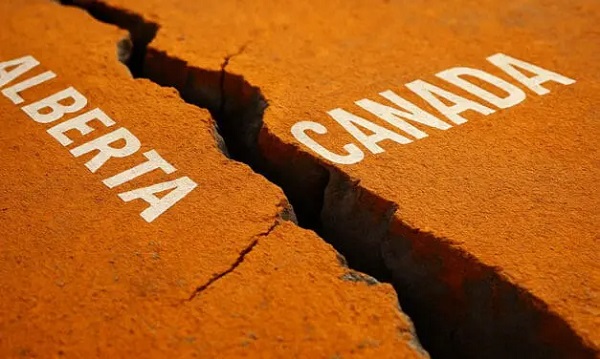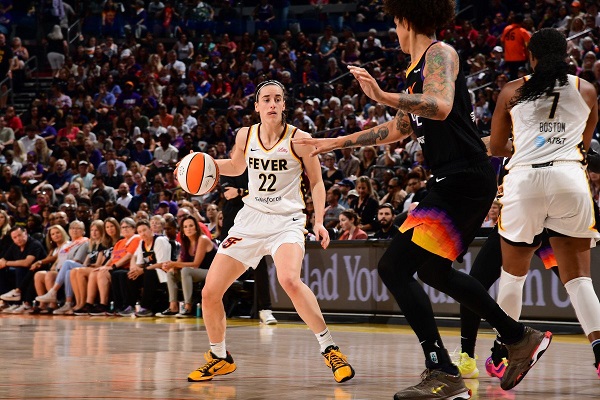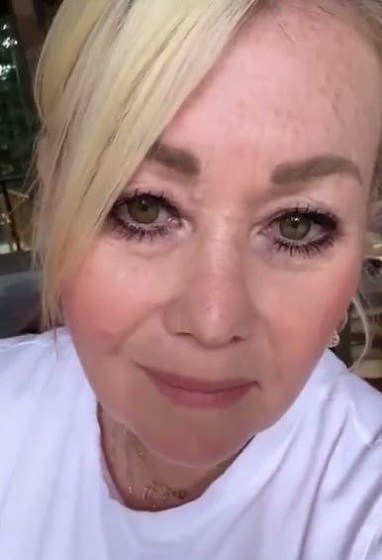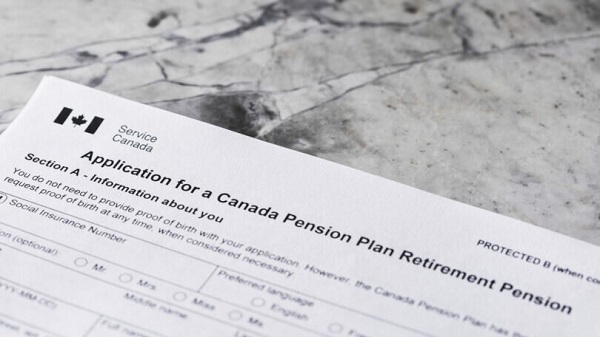2025 Federal Election
Allegations of ethical misconduct by the Prime Minister and Government of Canada during the current federal election campaign

 Preston Manning
Preston Manning
A letter to the Ethics Commissioner sent April 9th, 2025
On April 4, 2025, during the current federal election period, in which employees of the Canadian Broadcasting Corporation (CBC) report on all aspects of the election, the unelected Prime Minister, without any consultation with or authorization by parliament but apparently with the concurrence of the Minister of Heritage, promised an increase of $150 million in the budget of the CBC on top of its $1.38 billion budget for the current fiscal year.
The CBC consistently and for obvious reasons tends to share the ideological orientation of the governing Liberal Party and its political allies, and supports many of their policy positions. It tends to ignore or oppose those of the Conservative Official Opposition which proposes dismantling the CBC.
The unelected Liberal Prime Minister promising a $150 million bonus to the CBC in the middle of an election campaign would thus strike any objective observer as unethical, damaging to public confidence in our democratic institutions, and deserving of investigation and commentary by your office.
In particular, it is respectfully requested that you address the following questions:
1. Has the Prime Minister acted unethically by promising the state owned broadcasting corporation, sympathetic to the governing party, a $150 million increase in its budget, during a federal election campaign?
2. Is the promise of a $150 million increase in the budget of the CBC, during an election period in which the CBC is expected to give objective coverage to the campaign, in effect a defacto bribe and contrary to the spirit and the letter of the Conflict of Interest Code and Act?
In addition, on April 7, 2025, again during the current election period, the Prime Minister has announced that the federal government will distribute approximately $4 billion in carbon rebate payments directly to approximately 13 million Canadians, many of whom are eligible voters, and will do so prior to the election day of April 28.
This naturally raises the following questions which it is again respectfully requested that you address:
3. Has the Prime Minister and the federal government acted unethically by authorizing the distribution, prior to election day, of almost $4 billion in rebate payments to approximately 13 million Canadians, many of whom are voters, and doing so with the suspected intent of winning the support of those voters?
4. Is the promise and delivery, prior to election day, of almost $4 billion in rebate payments to approximately 13 million Canadians, many of whom are voters, in effect a defacto attempt to bribe those voters with their own money, and contrary to the spirit and the letter of the Conflict of Interest Code and Act?
To assist in the consideration of these allegations, suppose the UN were to ask Canada to supervise a national election in a third world country where democracy is frail and elections subject to abuse by those in authority. Suppose further that the unelected president of that country, during the election campaign period, endeavored to secure:
· The support of the state broadcasting corporation by promising it a huge increase in its budget, and,
· The support of millions of voters by ensuring that they received a generous personal payment from his government just prior to election day.
In such a situation, would not the Canadian monitoring authority be obliged to strongly censure such behaviors and report to the UN that such behavior calls into question the democratic legitimacy of the election subjected to such abuses?
If we as Canadians would consider such political behaviors anti-democratic and unacceptable if practiced in a foreign country, ought we not to come to the same conclusion even more quickly and certainly when they are regrettably practiced in our own?
Please respond to questions 1-4 above prior to April 25, 2025 and please ensure that your responses are made public prior to that date.
Thanking you for your service and your commitment to safeguarding public confidence in Canada’s democratic institutions and processes.
Your sincerely,
Preston Manning PC CC AOE
2025 Federal Election
NDP’s collapse rightly cost them official party status

This article supplied by Troy Media.
 By Michael Taube
By Michael Taube
Official party status requires 12 seats. The NDP got seven. End of story
Rules are rules.
That, in a nutshell, is why the NDP wasn’t granted official party status in the House of Commons on Monday. Prime Minister Mark Carney and the
Liberals, to their credit, made the right decision.
Let’s examine why.
The 1963 Senate and House of Commons Act passed an amendment that gave an annual allowance to party leaders other than the prime minister and
leader of the Opposition. In doing so, the Canadian government had to establish what constitutes a “political party.” The definition they came up with was a sensible one: it had to have a “recognized membership of 12 or more persons in the House of Commons.”
This important amendment is still used today.
The NDP fell from 24 to a paltry seven seats in last month’s federal election. (There are a total of 343 seats in the House of Commons.) They finished with 1,234,673 votes, or 6.29 per cent, which was behind the Liberals, Conservatives and Bloc Québécois. Party leader Jagmeet Singh, who had represented the former Burnaby South riding since 2019, finished a distant third in the newly created Burnaby Central riding and resigned.
The NDP’s seven seats is well below the 12-seat requirement needed for official party status. This means Canada’s socialist alternative won’t be able to ask questions in the House of Commons and will lose out on money for research purposes.
Or, to put it another way, they’re plumb out of luck.
Hold on, some people said. They pointed out that the NDP’s seat count and popular vote only plummeted because many progressive voters backed Carney and the Liberals as the best option to counter U.S. President Donald Trump and his tariffs. They felt that the NDP’s long history as a champion for unions and the working class should count for something. They suggested there should be an exception to the rule.
Guess what? They’re wrong.
This is the worst election result in the party’s history. Even its predecessor, the Co-operative Commonwealth Federation (CCF), did marginally better in its first campaign. The CCF won seven out of 245 seats—and earned 410,125 votes, or 9.31 per cent—in the 1935 election. Party leader J.S. Woodsworth, who had represented the riding of Winnipeg North Centre as an Independent Labour MP since 1925, comfortably held his seat.
Meanwhile, this won’t be the first time they’ve ever lost official party status.
The NDP dropped from 43 to nine seats in the 1993 election. It was a dismal showing, to say the least. There was a suggestion at the time that then-party leader Audrey McLaughlin, the first woman to lead a party with political representation in Canada’s House of Commons, deserved a better fate. While the NDP certainly came closer to achieving the 12-seat requirement in this particular election, Prime Minister Jean Chrétien and the Liberals decided against granting them official party status.
Why? As I mentioned earlier, rules are rules.
Then again, British pilot Harry Day notably told his fellow flying ace Douglas Bader in 1931, “You know my views about some regulations—they’re written for the obedience of fools and the guidance of wise men.”
Does this mean that individuals and organizations who follow rules are, in fact, fools? Not at all. While certain rules in a liberal democratic society can range from slightly questionable to utterly ridiculous, they’re usually put in place for a specific purpose.
In the case of the House of Commons, it’s to ensure that a bar has been set with respect to political representation. Is 12 seats the right number? That’s difficult to say. It certainly prevents small protest parties and one-issue parties that unexpectedly win a tiny number of seats in an election from acquiring power and status right off the bat. They need to win more seats and grow in size and stature to reach a point of respectability. Most of them never reach this point and disappear while others float in a constant state of mediocrity like the Green Party of Canada. ’Tis the nature of the political beast.
One final point. If Singh and the NDP had reached double digits in total number of seats in 2025, a solid case could have been made in favour of official party status. If they had finished with 11 seats, it would have almost been a lock. Neither scenario ultimately materialized, which is why Carney and the Liberals did exactly what they did.
Michael Taube is a political commentator, Troy Media syndicated columnist and former speechwriter for Prime Minister Stephen Harper. He holds a master’s degree in comparative politics from the London School of Economics, lending academic rigour to his political insights.
Troy Media empowers Canadian community news outlets by providing independent, insightful analysis and commentary. Our mission is to support local media in helping Canadians stay informed and engaged by delivering reliable content that strengthens community connections and deepens understanding across the country.
2025 Federal Election
Judicial recounts give Conservatives 2 more seats, keeping Liberals short of majority

From LifeSiteNews
After a judicial recount, Conservative candidate Kathy Borrelli has officially won over Liberal incumbent Irek Kusmierczyk, in the Ontario riding of Windsor-Tecumseh-Lakeshore.
Judicial recounts from the 2025 federal election have given the Conservative Party two new seats, with one candidate winning by just four votes.
After a judicial recount, Conservative candidate Kathy Borrelli has officially won over Liberal incumbent Irek Kusmierczyk, in the Ontario riding of Windsor-Tecumseh-Lakeshore.
Borrelli got 32,090 votes, with Kusmierczyk getting 32,086 votes, and NDP candidate Alex Ilijoski getting 4,240 votes.
In the Newfoundland riding of Terra Nova-The Peninsulas, Conservative candidate Jonathan Rowe beat out Liberal Anthony Germain by just 12 votes after a recount with the initial result showing a Liberal victory.
The new election results mean the Conservatives now have 144 seats with the Liberals at 169, three short of a majority.
Judicial recounts are automatically triggered when the margin of victory for a candidate is less than 0.1 percent of valid votes.
While these recounts have favored the Conservatives, others have gone in the Liberal Party’s favor.
A May 16 judicial recount switched the southern Ontario riding of Milton East-Halton Hills South to the Liberals with a 21-vote victory over the Conservatives.
Overall, the election results have been a big blow to the Conservative Party, which on top of losing the election also saw its leader, Pierre Poilievre, fail to win his long-held seat. However, Poilievre is expected to run in a yet-to-be-announced by-election in Alberta to reclaim a seat in Parliament.
-

 Addictions13 hours ago
Addictions13 hours agoMan jailed for trafficking diverted safer supply drugs, sparking fresh debate over B.C. drug policies
-

 Alberta15 hours ago
Alberta15 hours agoHow Trump and Alberta might just save Canada
-

 Bruce Dowbiggin10 hours ago
Bruce Dowbiggin10 hours agoCaitlin Clark Has Been The Real Deal. So Her WNBA Rivals Hate Her
-

 Business14 hours ago
Business14 hours agoThe Liberals Finally Show Up to Work in 2025
-

 Alberta13 hours ago
Alberta13 hours agoJann Arden’s Rant Will Only Fuel Alberta’s Separation Fire
-

 Banks11 hours ago
Banks11 hours agoCanada Pension Plan becomes latest institution to drop carbon ‘net zero’ target
-

 Daily Caller12 hours ago
Daily Caller12 hours agoThere’s A Catch To California’s Rosy Population Stats
-

 espionage1 day ago
espionage1 day agoTrudeau Government Unlawfully Halted CSIS Foreign Operation, Endangering Officers and Damaging Canada’s Standing With Allies, Review Finds


